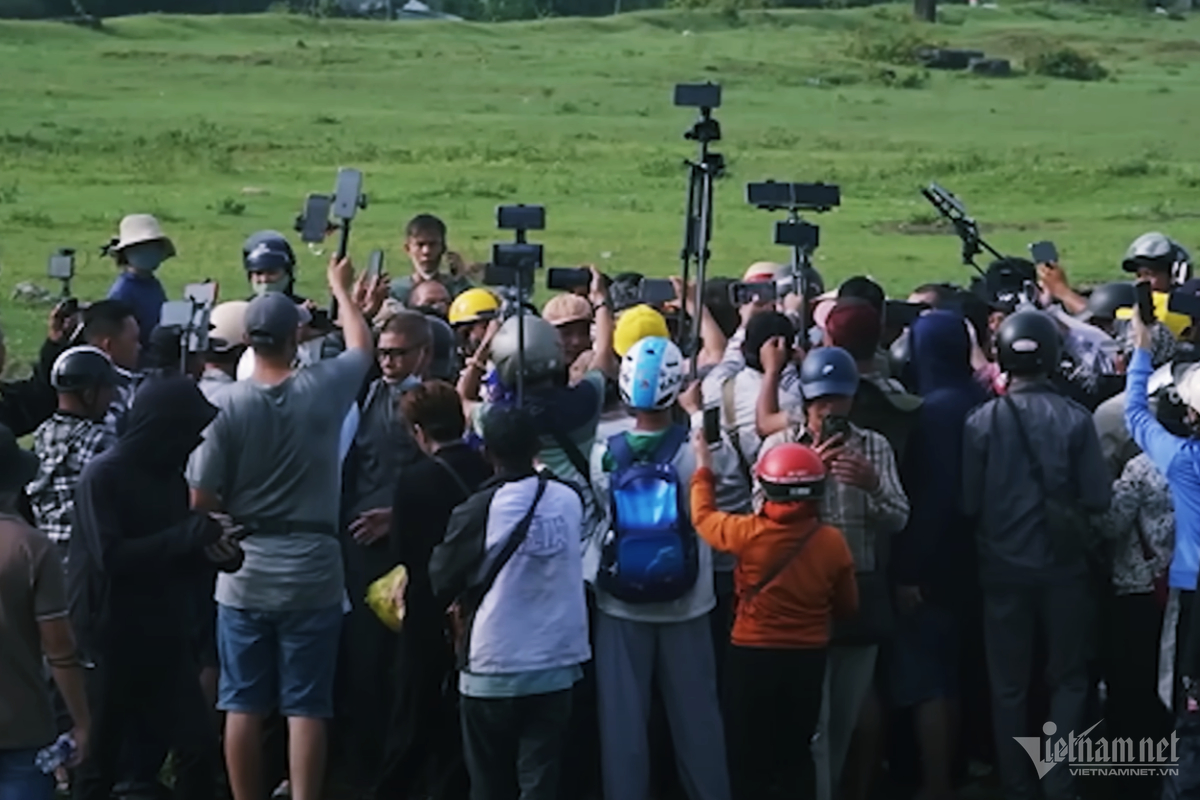
Le Quoc Vinh, a journalist, and chair of Le Group of Companies, said some streamers can earn VND60 million a day by posting videos about Le Anh Tu, whose Buddhist name is Thich Minh Tue, a mendicant figure.
YouTubers and TikTokers followed the monk daily, livestreaming and posting the latest photos about the monk, creating a media craze.
The big amount of money that could be gained prompted the content creators to trample on human values and moral values, infringe people’s privacy and cause negative effects to society.
To make money, many social network channels are willing to post sensational news and try every possible way to entice viewers, including providing wrong information.
On June 3, Thua Thien - Hue Police, in cooperation with the provincial Department of Information and Communications and Huong Tho commune police in Hue City, had a working session with Nguyen Van T, 34, residing in Thanh Tuyen commune in Dau Tieng district in Binh Duong province about T’s posting wrong information about Monk Thich Minh Tue.
On June 2, T posted the videos showing many people following the monk, with sensational titles and wrong information, on his YouTube channel called ‘15s BinhDuong’.
He fabricated the news that Hue City became chaotic when Monk Thich Minh Tue entered the city, and that police had blocked all vehicles when the monk passed through the locality.
When meeting the police, T admitted to posting videos violating the laws, and the provincial Department of Information and Communications imposed administrative fines on the YouTuber.
Prior to that, in March 2023, streamers flocked to the funeral of cai luong (Vietnamese traditional opera) artist Vu Linh, causing social disorder in the locality.
Many streamers had tried to lure viewers by providing wrong information, such statements as "Hoai Linh (a famous artist) made public Vu Linh’s testament" and "Tai Linh went directly from the airport to Vu Linh’s funeral". The videos then attracted hundreds of thousands of viewers within a short time.
Though many livestreamers and content creators have been punished for posting wrong information on social networks, more and more ‘dirty’ videos still appear.
Nhan Nguyen, who provides digital marketing services in HCM City, said if streamers are shown as harassing other people, or breaking the solemnity of funerals, they can be disciplined for disturbing public order.
However, analysts point out that legal loopholes still exist as there is no regulation stipulating the use of images of other people for commercial purposes.
Many people complain that their images have been used to make money without their consent, but they don’t know how to protect their privacy because there is no regulation on the issue. As a result, "dirty" livestream activities are still carried out every day.
Le Hoang Minh, a social network service provider, said the Ministry of Information and Communications (MIC) which drafted the decree to replace Decree 72 on managing, providing and using internet services and online information, has set regulations on livestream activity, which says that only licensed social networks and users who provide personal information are allowed to carry out the activity.
However, Minh said it is still necessary to clarify how violators (using images of other people for commercial purposes and using images for dirty livestreams) will be handled.
He said that only when relevant agencies and platforms providing services can cooperate with each other will the "social evil" be settled.
Le Quoc Vinh of Le Bros commented that it is difficult to control livestream activities, because one just needs to have a smartphone, and there are many other devices to support the activity.
Besides, the public's curiosity to follow proposed content is an excuse and an opportunity for individuals to conduct livestreams everywhere.
He said that the current regulations and sanctions are not strict enough, and the cooperation between state management agencies and network operators. As a result, there are not enough effective tools to prevent objectionable content.
Lawyer Dao Tien Phong from the HCM City Bar Association said that using audio or video recording devices to livestream, film or photograph images of individuals without their consent violates these individuals’ personal rights.
Le My